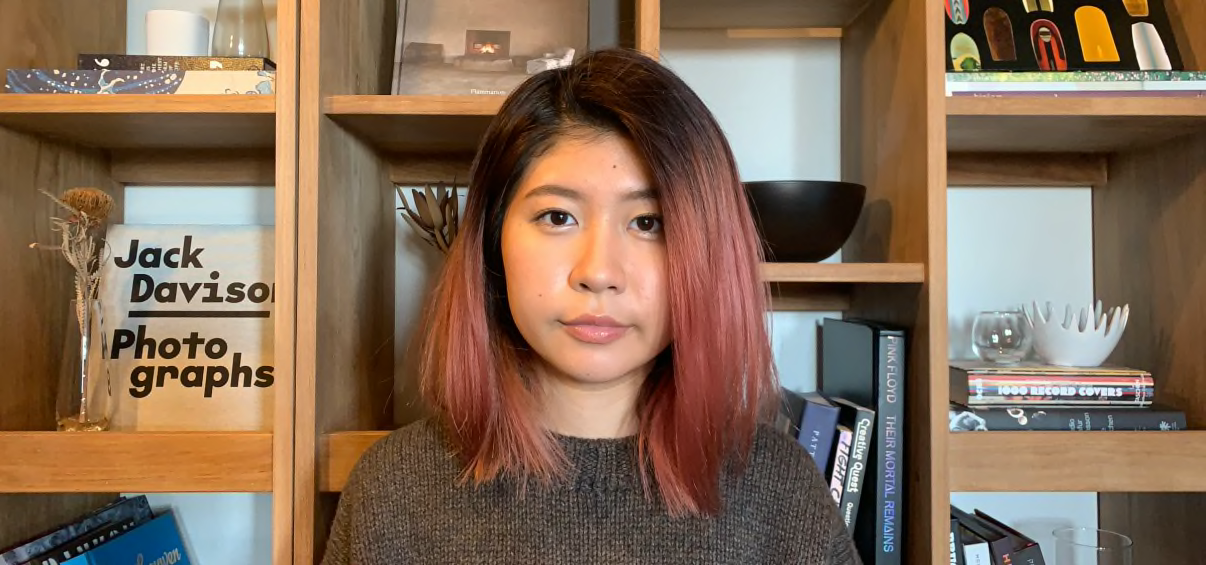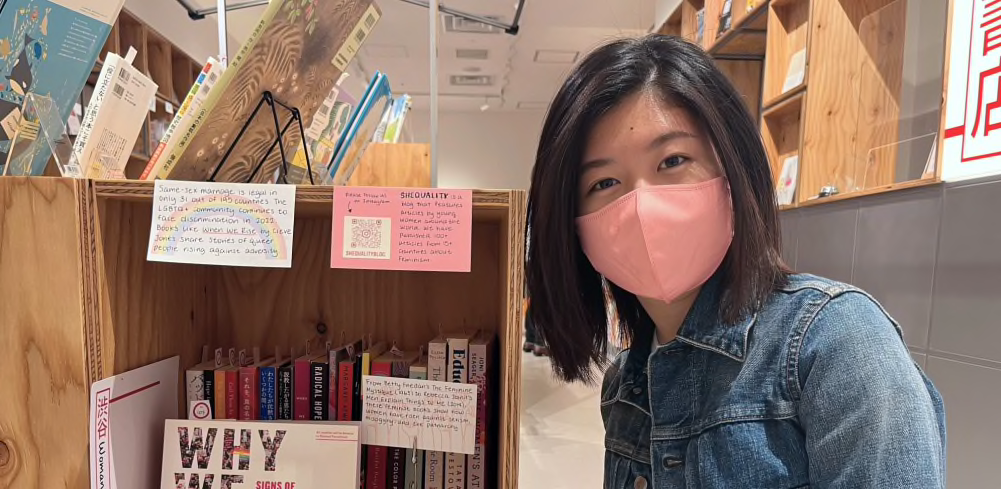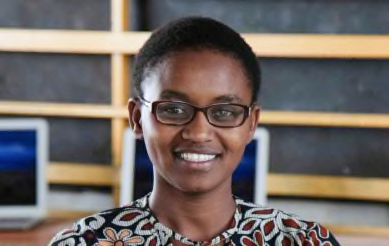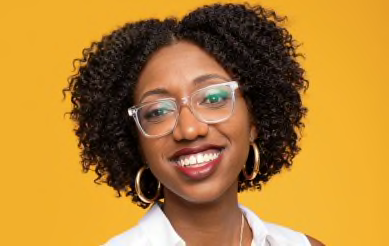Meet Yuko, a 17 Year Old Coder Turning Journal Entries on Inequality Into an Online Feminist Community

At nine years old Yuko Nagakura learned to code. Now at the age of 17, she built two global communities that invite more girls into tech and challenge gender inequality in the industry. Yuko joined Logitech MX for the #WomenWhoMaster series to talk about her passion for coding, the ways she gives back to girls younger than her, and how her global community is challenging even her own views on feminism.
Q: Share a little bit about how you grew up. Were you a traditional computer geek?
I live in Japan, and I'm Japanese, but from about six to 14 years old I lived in the U.S. Growing up in the U.S. gave me a lot of opportunities kids in countries like Japan might not have had. It’s part of what inspired me to give back.
I've liked computers since I was really, really young. I begged my parents for a computer when I was eight years old. They got one for me for Christmas and I was immediately in love. When I was nine, I started coding with an online platform called Scratch. My parents have always been supportive.
"I think parent involvement * is the changing factor when it comes to a young student wanting to explore the space."
Q: You started World Coding Club, a student organization dedicated to providing quality, hands-on technology education for young people by introducing them to computer science and tech entrepreneurship. How did your early interest in tech play a role in founding a nonprofit?
In the U.S. I was immersed in hackathons, coding competitions, and coding events and tournaments that allowed me to grow in my coding skills and my passions in general.
When I moved back to Japan things were different. The idea for World Coding Club started at school when a teacher came in to teach coding for a day. It wasn’t fun at all!
"I remember my classmates saying “this is so boring.” And, at that time, I thought: "Wait, there's a lot of room to make fun opportunities for middle and high school students to code here in Japan."
A year later I started World Coding Club with another high school student, who also moved from the U.S. to Japan. The first thing we did was organize a hackathon for middle and high school students in Japan. Now we get registrations from all around the world. At our last hackathon students from more than 30 countries joined.
Q: How do you mentor younger students?
Mentoring younger students has been the coolest part about all of this. We communicate with students directly during the hackathons through Discord and other forms of communication. That might be direct help or giving them a nudge like, "hey, this might be the direction you might take your project in." It's been cool to be able to connect with students and help them any way we can.

Q: Did you have a mentor?
Yes. She didn’t help me with coding but when I was 13 years old, my English Literature teacher taught me about gender equality and feminism in literature. She was an advocate for feminism herself. Her class sparked my interest in activism. And I think that, in that sense, she helped me create communities that promote feminism like World Coding Club and SHEQUALITY.
Q: What is SHEQUALITY and why did you start it?
SHEQUALITY is an online platform where female writers from around the world publish articles about feminism from a global lens. We just hit the milestone of publishing 100 articles!
It all started when I moved back to Japan from the U.S. I noticed that there were all of these differences in feminism and gender equality here — both good and bad. I was interested in these differences and so I started a journal about what I saw.
Then I started going to an online school when I was 15. All of a sudden my classmates were from different places around the world. We all had to write introductions and in mine I wrote one of my interests is feminism. A few other students contacted me and said that was cool which made me think maybe I can turn my journal into an actual platform and invite other girls to it. That's when I started SHEQUALITY.
The original team was six girls from different places. Then other girls who read the articles said they wanted to join as well, so we kept expanding our team. Now we have writers from all inhabited continents.
Q: It sounds like you started SHEQUALITY to help change the world, but has it changed you?
In the U.S. feminism is one thing. It’s for everyone. Even men can be feminists and that’s the only view I had. But there was an article from a girl in Costa Rica that made me realize my view of feminism really only applies to my experience and the regions I’ve lived in. I realized that the type of feminism a certain region needs, who can be involved, and what it advocates for has to be different depending on the culture.
"Reading the articles and talking to the other girls has been a really eye-opening experience for me. Because there are girls from so many different cultural lenses it’s changed how I think about feminism. "
Q: What do you wish was more common in the world of STEM and computer science today?
I wish there wasn’t a need to do what I am doing. There are a lot of amazing NPOs (nonprofit organizations) and other organizations in the world doing what is needed. But I hope in the future there is less need to make the explicit statement that women and young girls are welcome in tech.
Connect with Yuko on LinkedIn. To learn more about SHEquality, please visit Shequalityblog.org.
Women Who Master puts a spotlight on women who have made outstanding contributions to STEM fields. The goal of the series is to celebrate those contributions, inspire future leaders, and help close the gender gap in technology.
Photo credit: Yuko Nagakura
#WOMENWHOMASTER
MEET THE MASTERS AT THE FOREFRONT OF STEM

Nelly Cheboi

Nadia Zhuk

Jerelyn Rodriguez

CODECADEMY AND LOGITECH
Partnering to inspire the builders of tomorrow, MX Series and Codecademy give you the tools needed to build, scale, and code to your fullest potential. Learn essential coding, programming, and AI skills to reimagine the future of tech with one free month of Codecademy Pro.

Women Who Master
Logitech MX is committed to spotlighting and supporting impactful initiatives and individuals that are disrupting the industry worldwide, to inspire girls and women to pursue a career or continue thriving in STEM.
With #WomenWhoMaster, our mission is to ignite an industry-wide movement that addresses the gender gap and unequal access to opportunities in tech and IT, once and for all.
* For more details, read the report here